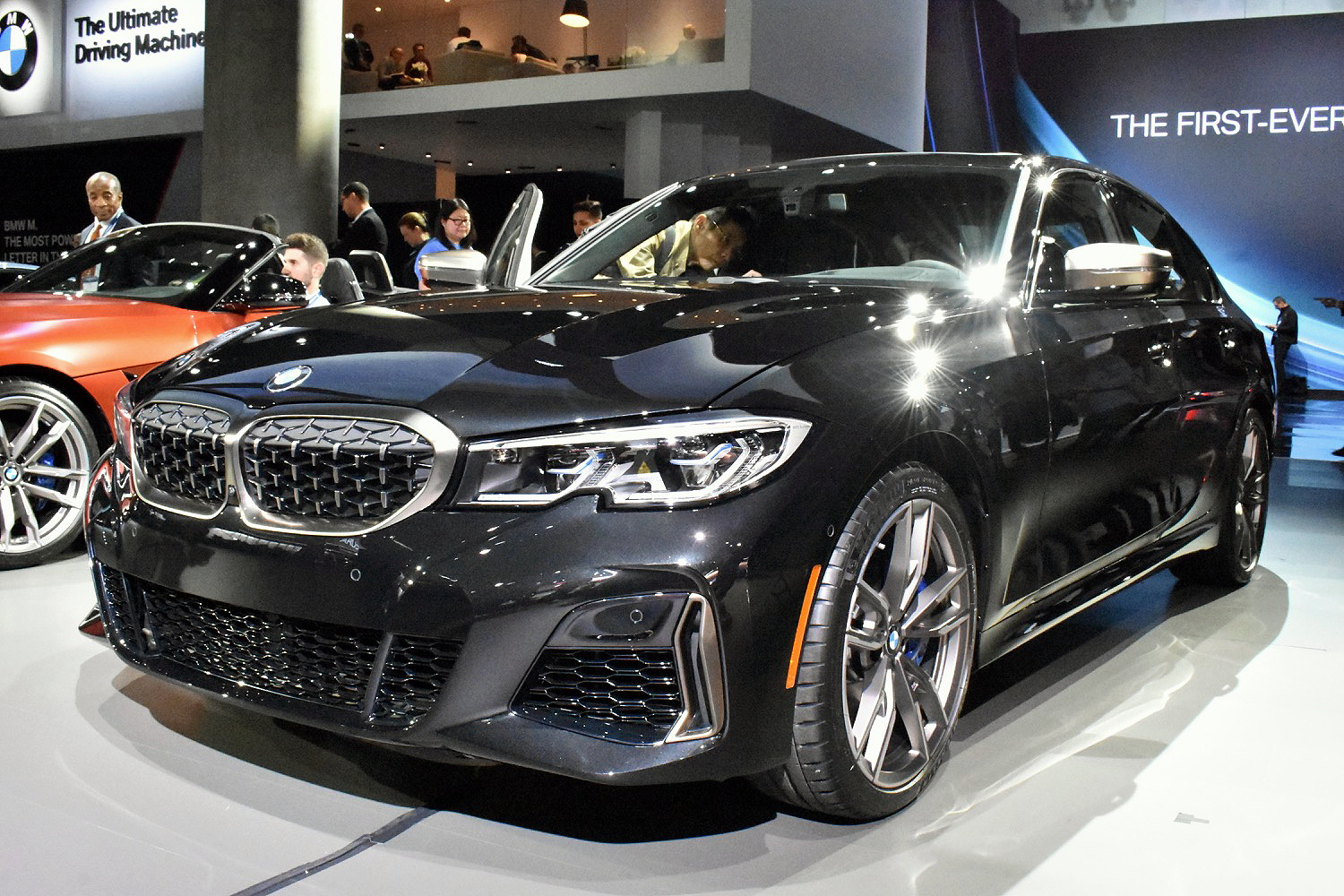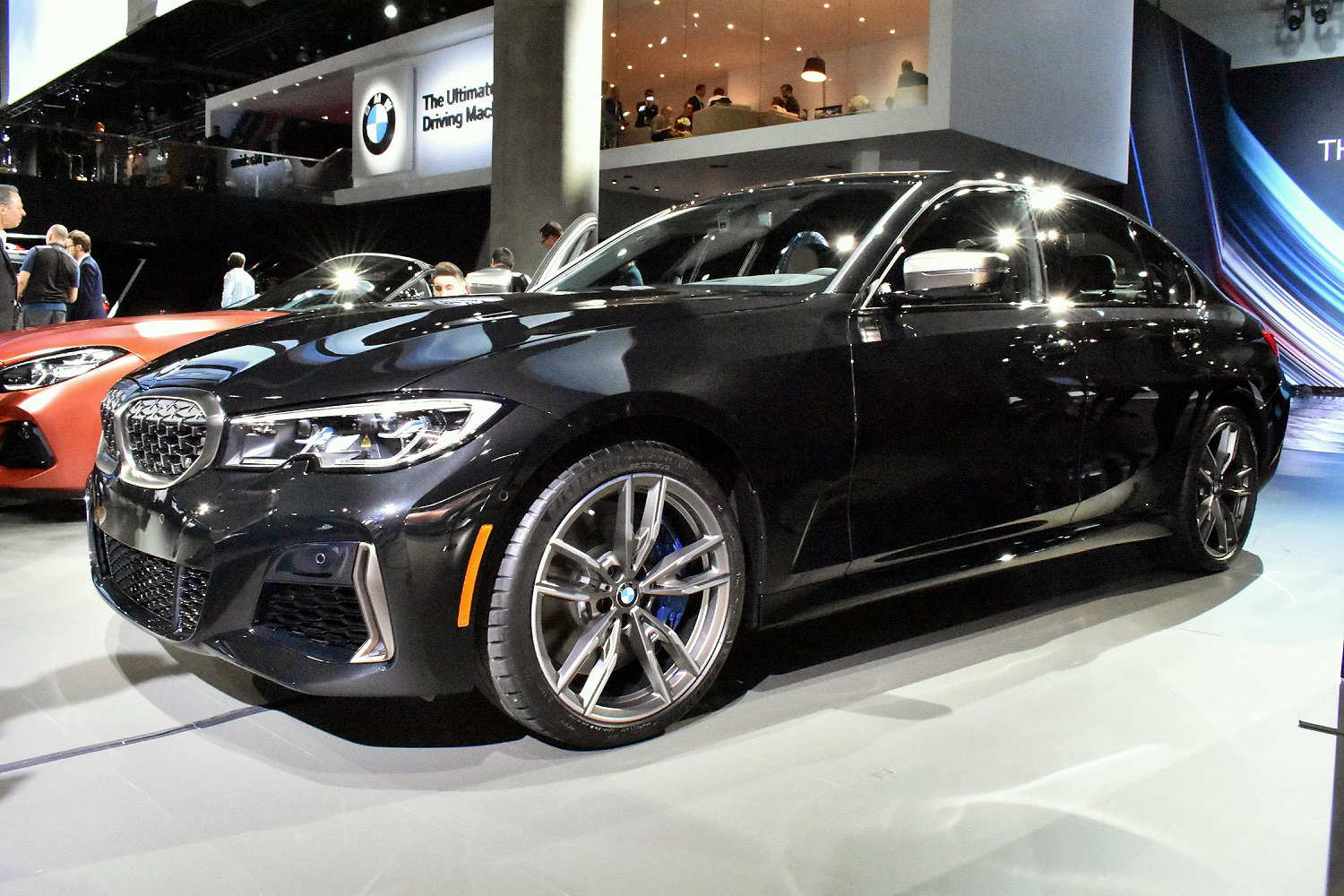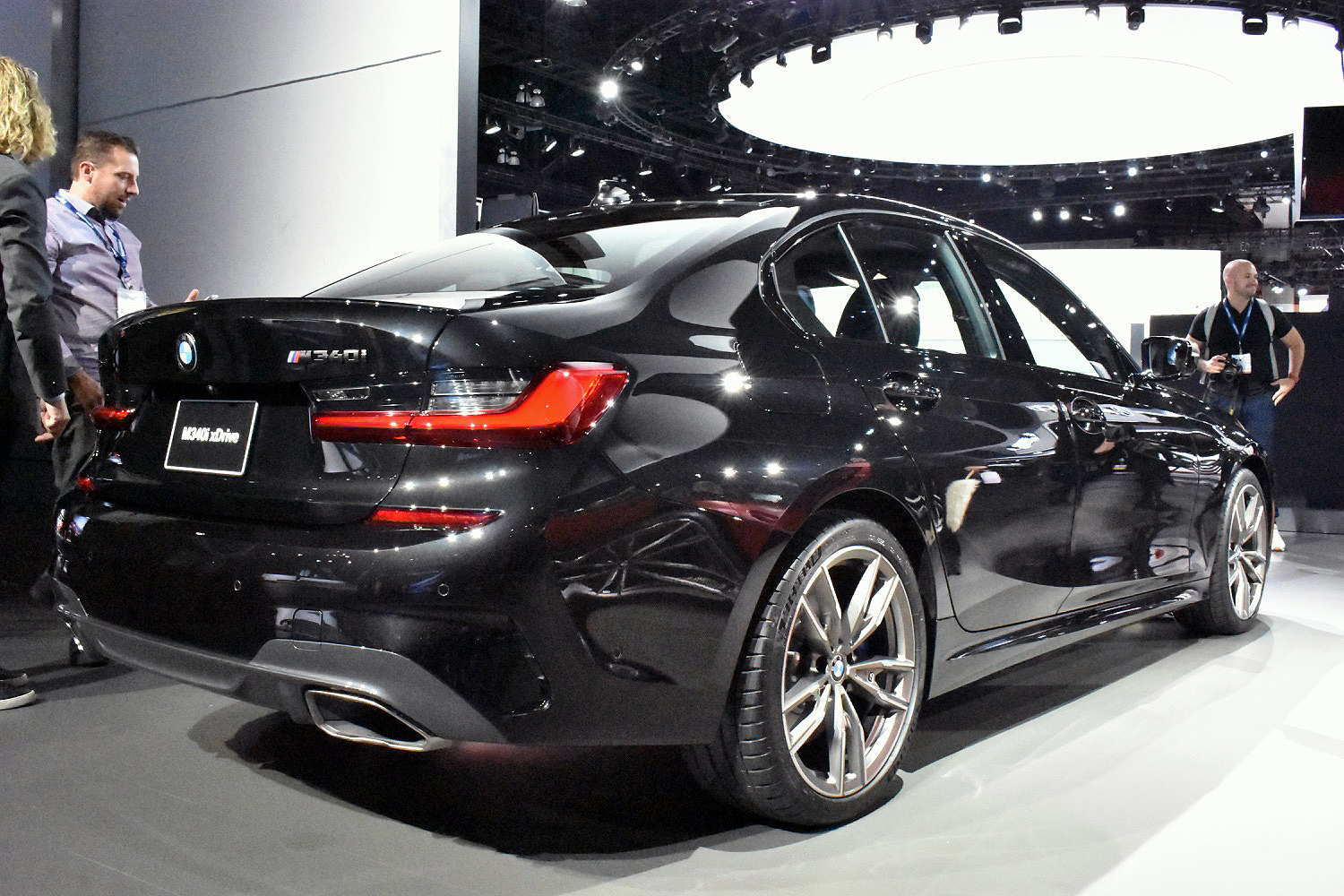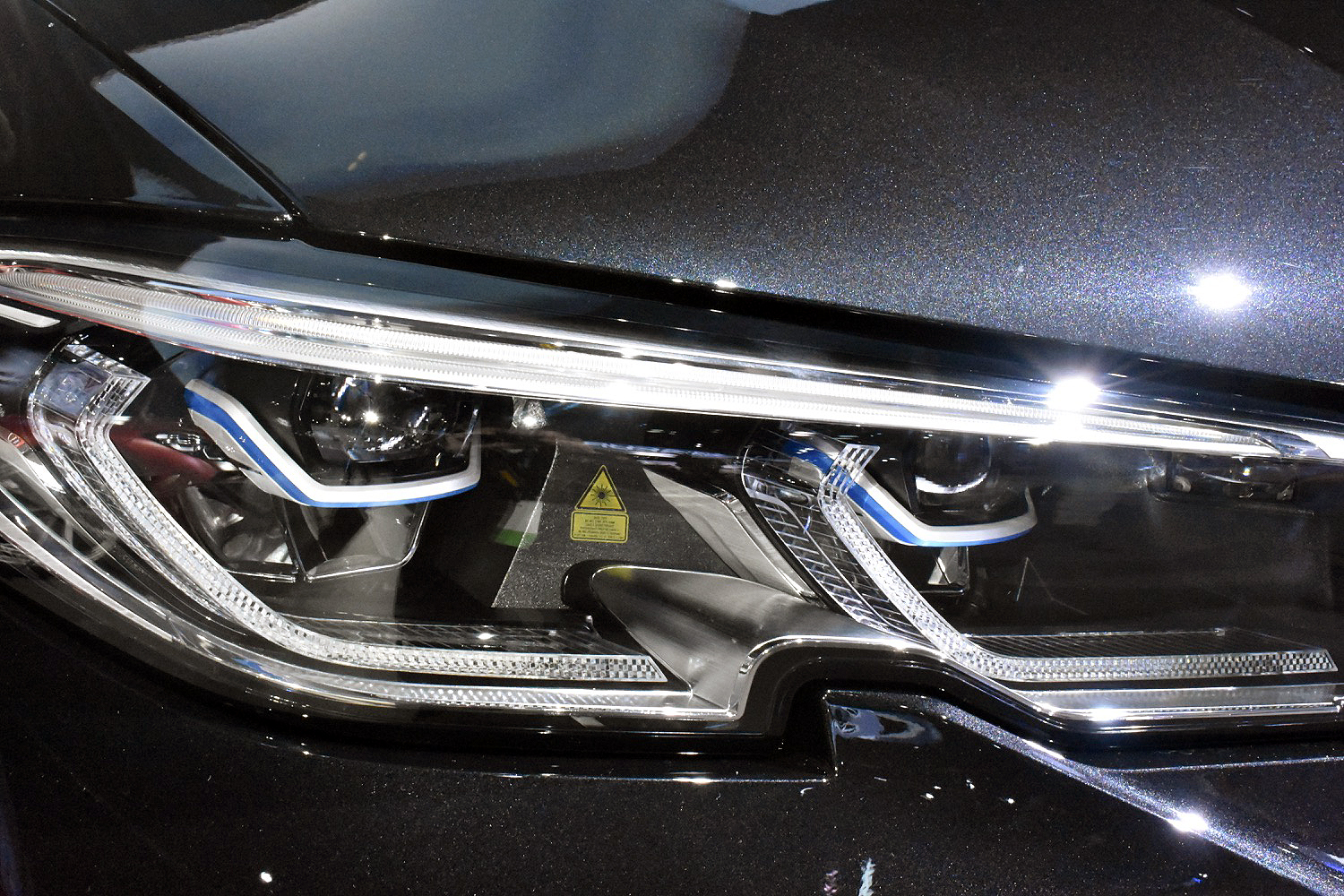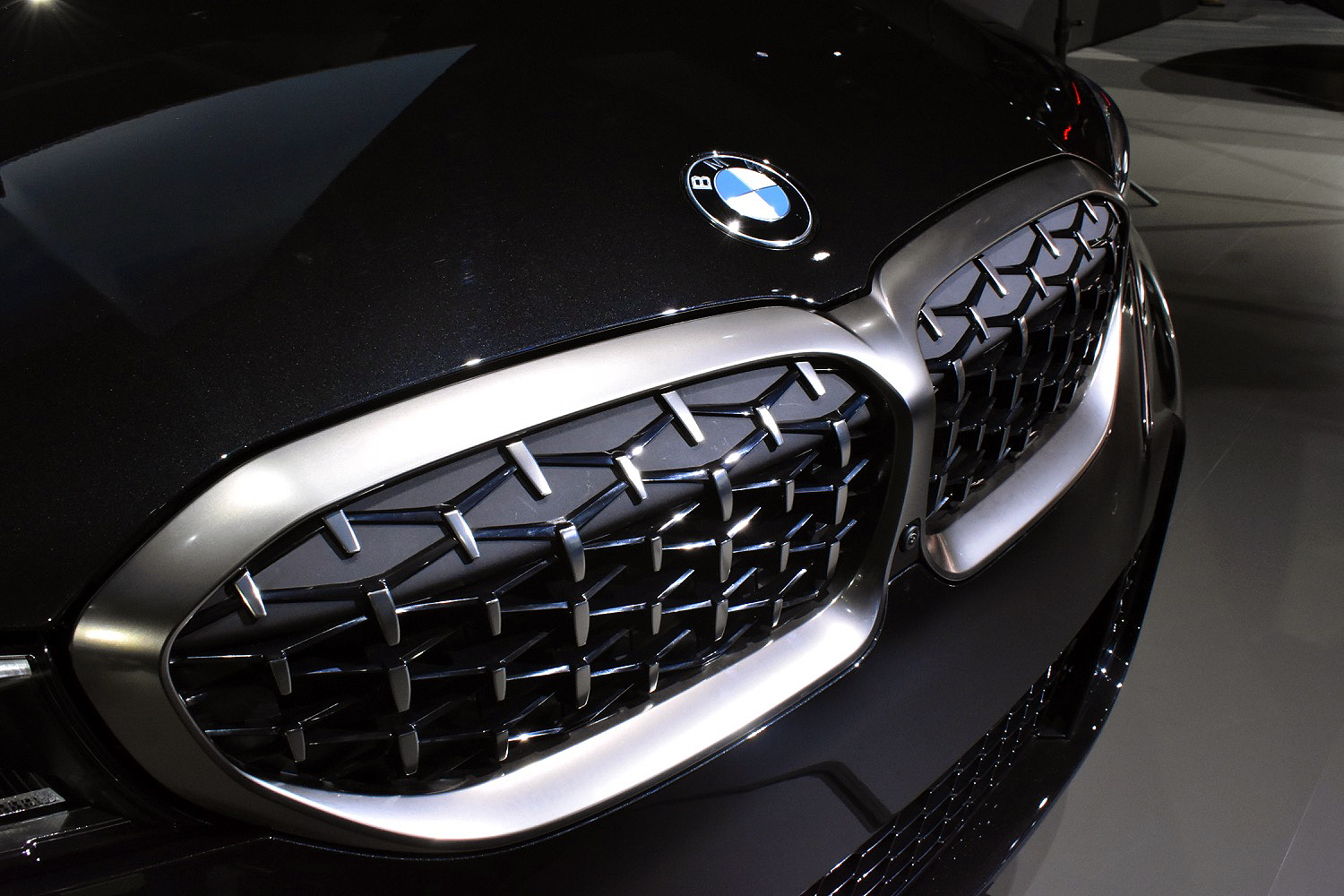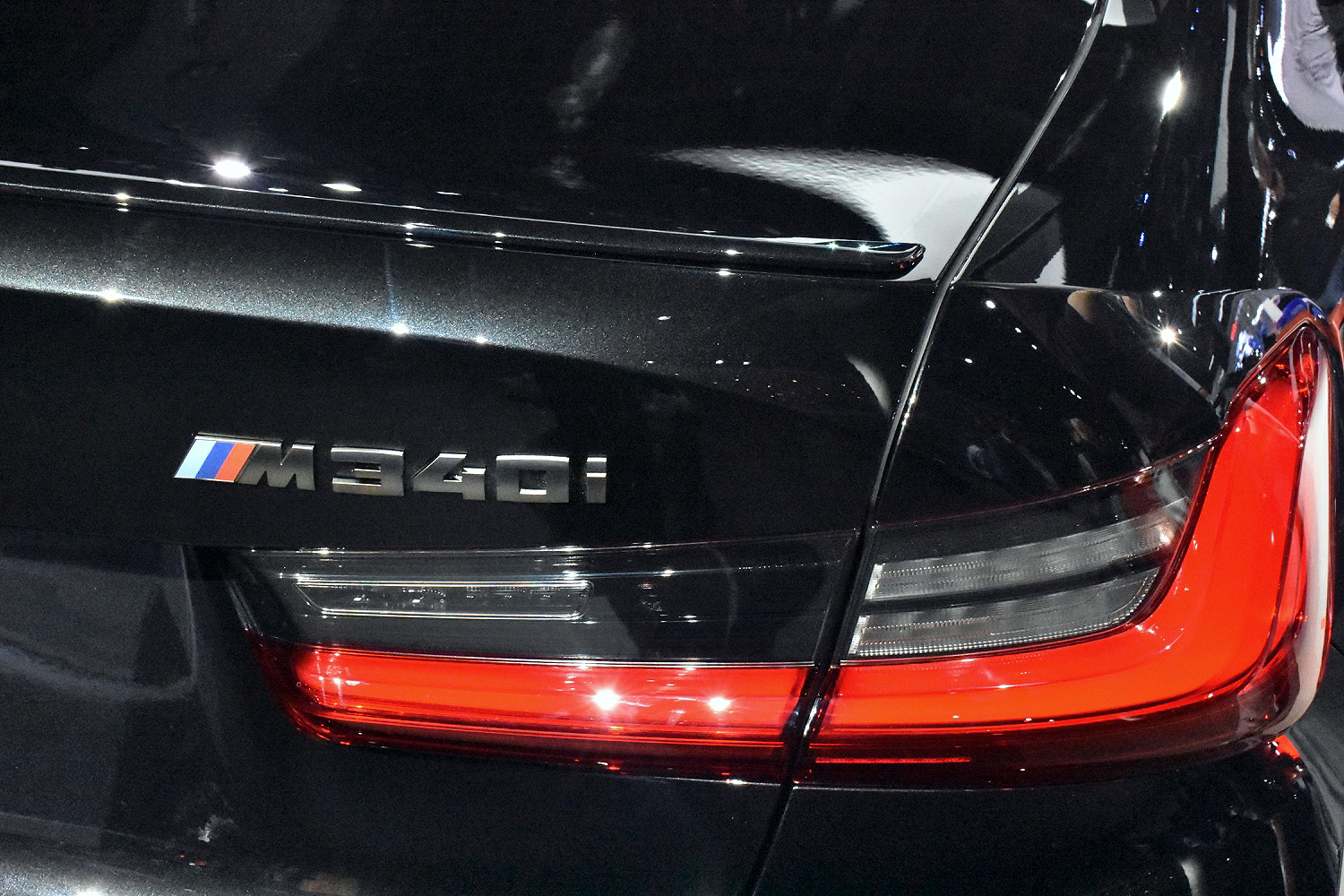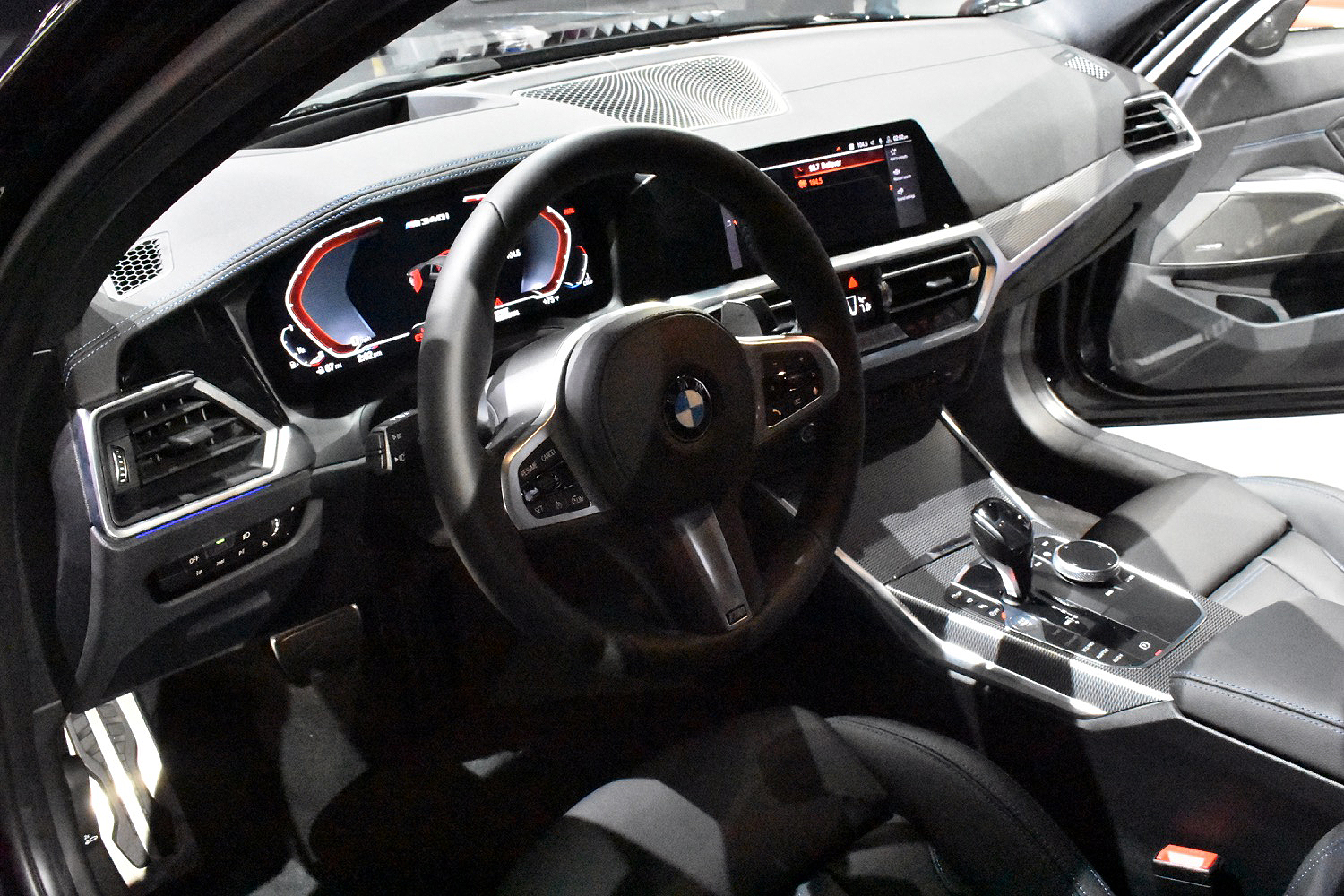It’s hard to overstate the impact of the BMW 3 Series.
BMW’s small sedan helped redefine what premium cars could be, offering a blend of performance and luxury that rivals have been trying to match for decades. Over six generations, the 3 Series has become the darling of car enthusiasts and a mainstay of luxury car buyers, and expectations are high for the brand-new, seventh-generation 3 Series. It made its public debut at the 2018 Paris Auto Show, and BMW has shared details about the high-zoot M340i at the 2018 Los Angeles Auto Show.
On the outside, the new 3 Series doesn’t look dramatically different from its predecessor, but it uses a new body shell made from a mix of high-strength steel and aluminum. Despite being slightly larger than the outgoing model, the 2020 3 Series is up to 121 pounds lighter, according to the Munich-based firm. The new 3 Series also boasts an impressively slippery drag coefficient of 0.26. It also incorporates adaptive LED headlights into BMW’s Laserlight system, which redirects light automatically to avoid blinding other drivers while the high beams are on.
The first 2020 3 Series variant to hit showrooms will be the 330i. It features standard rear-wheel drive, optional xDrive all-wheel drive, and a turbocharged 2.0-liter four-cylinder engine producing 255 horsepower and 295 pound-feet of torque. BMW will then launch the M340i in both rear-wheel drive and xDrive guises, with a turbocharged 3.0-liter inline-six producing 382 hp and 369 lb-ft. The 330e plug-in hybrid will return as well. The 3 Series has been a manual transmission holdout, but BMW confirmed it won’t offer the seventh-generation model with a stick in the United States.
The 2019 330i will do zero to 60 mph in 5.3 seconds with all-wheel drive, and 5.6 seconds with rear-wheel drive, according to BMW, with a top speed of 155 mph for both versions when equipped with optional performance tires. The M340i will do zero to 60 mph in 4.2 seconds with all-wheel drive. Expect the next-generation M3 performance model to improve on that.
Like all modern BMWs, the 2020 3 Series will be available with an array of driver aids. The adaptive cruise control system works at speeds up to 130 mph and can brake the car to a complete stop, according to BMW. On limited-access highways at speeds up to 37 mph, a traffic-jam assist system can keep the car moving without any control inputs; it uses a camera to ensure the driver is still paying attention. A parking assist feature can automatically maneuver the car into parallel or perpendicular spaces, according to BMW.
The updated iDrive infotainment system works through a standard 8.8-inch touchscreen and 5.7-inch digital instrument cluster in base models. The optional Live Cockpit Professional version enlarges the displays to 12.3 inches and 10.25 inches, respectively. The 3 Series also gets BMW’s new Alexa-like personal assistant, which responds to the prompt “hey BMW” and natural-language commands like “find the nearest gas station.” BMW Digital Key lets owners use a smartphone in place of a conventional key fob. However, that function is only compatible with near-field-communication-capable Samsung Galaxy phones running Android 8.0 and above and on an approved carrier’s network.
The new BMW 3 Series promises more tech than ever, but will that overwhelm this sedan’s traditional mission as a driver’s car? We’ll find out when we get some seat time over the coming months. The 2020 BMW 33oi goes on sale in the U.S. in March 2019, priced from $41,245 with rear-wheel drive and $43,245 with xDrive all-wheel drive (both prices include a mandatory $995 destination charge). The M340i will arrive later in 2019, followed by the 330e plug-in hybrid in 2020, and new versions of the related 4 Series coupe and convertible after that. No word yet on the return of the 3 Series wagon or the Gran Turismo hatchback.
Updated 11-13-2018: Added official information about the M340i.
